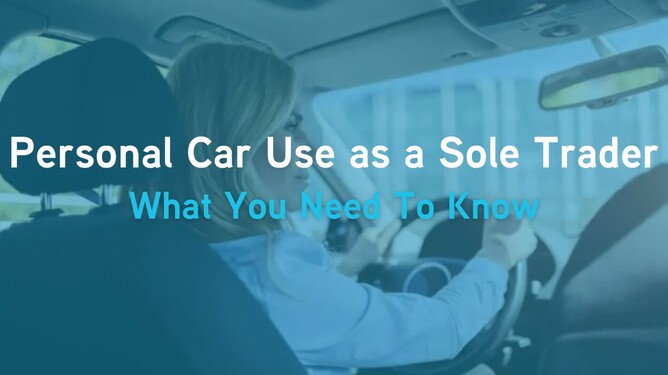As a sole trader, you may already own a car or be thinking of buying one for business purposes. If that’s the case, it’s important to understand how this is treated for tax and accounting purposes, and what steps you need to take to document things correctly.
Introducing a Car into Your Sole Trader Business
If you already own a car or are thinking of buying one and start using it for business purposes, the vehicle remains your personal asset, but it becomes relevant for your business to the extent that it is used for work-related travel.
From this point, you have two main options for how to deal with the associated costs and claim tax relief through your sole trader accounts.
Option 1: The Full Cost Method
Also known as the “actual costs” method, this involves recording and claiming a proportion of the car’s running costs based on how much it is used for business. This includes:
Fuel
Insurance
Repairs and maintenance
Road tax and MOT
Depreciation (or capital allowances where applicable)
To apply this method correctly, you must maintain accurate mileage records to determine the percentage of business use. For example, if 60% of your mileage is for business, you may claim 60% of the relevant costs.
This method can be beneficial if business use is high or the vehicle is relatively expensive to maintain.
Option 2: The Simplified Mileage Method
Alternatively, HMRC offers a fixed-rate mileage allowance, which allows you to avoid tracking individual expenses:
45p per mile for the first 10,000 business miles per tax year
25p per mile thereafter
This approach is ideal for those who want to reduce admin or have relatively low business mileage.
To use this method, you must keep a mileage log showing:
The date of the journey
The destination
The reason for the journey
The number of miles travelled
A Key Rule to Remember
Once you choose a method for a specific vehicle, you must continue using that method for as long as you use that vehicle in your business. You cannot switch between the actual cost method and the mileage method for the same car. However, if you replace the vehicle in the future, you can review and choose the most suitable method for the new one.
Essential Records to Keep
Regardless of which method you choose, make sure to keep:
A mileage log (required for both methods)
Receipts and records for running costs (if using the full cost method)
A record of the date the car started being used for business
A note of which method you are using for the vehicle
Final Thoughts
Whether you already own a car or are planning to purchase one for business use, it’s important to make the right accounting choice from the start. Good record-keeping will ensure you claim everything you’re entitled to and avoid complications with HMRC.
If you're unsure which method is right for you, or you'd like help recording your mileage or expenses, feel free to get in touch.
We’re here to support you in making the best choice for your business.

